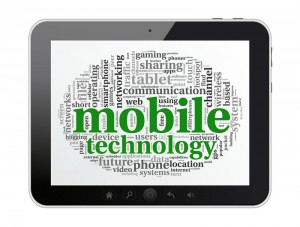 Bigger is better. At least that’s what Apple discovered when it unveiled larger iPhones. The sales numbers stunned everyone: 74.5 million iPhones in the first quarter of release.
Bigger is better. At least that’s what Apple discovered when it unveiled larger iPhones. The sales numbers stunned everyone: 74.5 million iPhones in the first quarter of release.
That’s more than 34,000 phones an hour, 24 hours a day, 7 days a week.
Even Tim Cook was taken aback, telling analysts the “Demand for iPhone was staggering,” adding, “This volume is hard to comprehend.”
Every major smartphone vendor has discovered that when it comes to consumer preferences, they are turning to larger screens.
The bigger story
But what is happening here goes beyond record sales numbers for Apple, Samsung, Google, LG or HTC.
What the dominance of bigger screen smartphones in the marketplace is doing is accelerating the dominance of mobile in every aspect of our lives.
Mobile growth has exploded with 71% U.S. market penetration, but I think we’ve just scratched the surface of what’s coming and coming on fast.
This is what real estate professionals need to pay attention to.
It’s more than just about market share of smartphones. It’s the behavior change that these big screens are creating.
Just take a look around you every day and what are you seeing? I am seeing large screen smartphones everywhere I look.
I was on a flight from Atlanta to Seattle and as I walked through the aisles, nearly everyone was in the prayer position: Head lowered, hands clutched, holding a large screen smartphone.
On the ferry ride home, I saw the exact same thing, from every demographic group, young and old.
If my wife’s parents, who are in their 70s, are a bellwether for how smartphones appeal to an older demographics, we going to see even strong sales – and greater behavioral changes.
For years my in-laws held out getting a smartphone, coveting their pocket flip-phones. But this winter, they made the switch and got matching large screen smartphones.
They said they could see everything so much better on their big screen phones.
But what is most fascinating to me is how they too now whip out their smartphones when we are on the ferry, heading into Seattle. They used to give our teenage sons a hard time about “always being on their phones,” but now they too have the bug.
They’ve also discovered the Zero Moment of Truth – the ability to Google search anything for an immediate answer during a purchase decision – and that is changing they way they buy.
The ability to look up the answer to any question makes a smartphone a tool in conversation today.
Keep in mind there are 76 million baby boomers, including my in-laws. This market is incredibly ripe for growth as less than half — only 46% of those over 65 years old – have smartphones.
This generation is going to be impacted by smartphones as every other generation has, they are just coming to the party a little later.
More profound change is coming
It’s not just older people that are changing their behavior because of large screen phones: We all are, every age group.
Our 17-year old son prefers watching movies on his Google 6 than borrowing my larger iPad. The convenience factor dominates. Our 19-year old keeps his phone at the ready whenever we are watching a television program together, and the instant a commercial comes on, he’s looking at his iPhone 6.
My wife is using her iPad less and her iPhone 6-plus more. Again, convenience dominates her choice, but the larger screen phone makes it a competitor with the iPad, something that she never really considered with her smaller screen iPhone 5.
An even bigger change: She no longer has neither a laptop nor desktop, and does everything from bill paying to correspondence on mobile devices.
The power of what is in our pockets and purses is simply daunting.
We wield more processing power in our hands than the first computers, which filled an entire building, and the realities of Moore’s Law tells us that we are heading for even greater things.
Impact on real estate
We already know that we are reaching the point where more home searches are being done on mobile devices than the desktop. That’s up from just one in five home searches on mobile devices three years ago.
We know that Google is telling everyone that mobile is it, and in fact, if your website is not mobile friendly, your search engine ranking going to tank.
We know that 77 Millennials – on par with Baby Boomers as one our largest population segment – are avid smartphone owners: 85% of Millennials aged 18-24 own smartphones and 86% aged 25-34 own them. We know they prefer to text. We know they live on their smartphones, which is often their favorite bedside companion.
We also know the generation right behind them are video-centric, only text and as a result, will likely cause the extinction of email.
The impact that mobile is having on our lives today in terms of changing our behavior is profound, and real estate needs to watch, learn and adapt to these changes as they are coming more rapidly than anyone imagined, because bigger, it turns out, in the land of mobile, really is better.





Leave A Comment